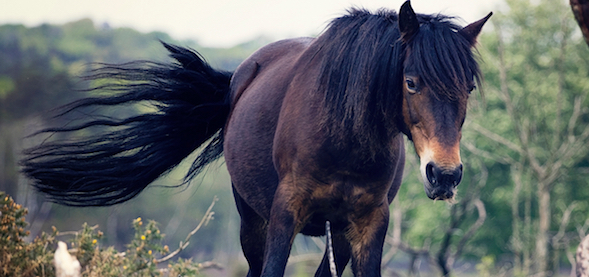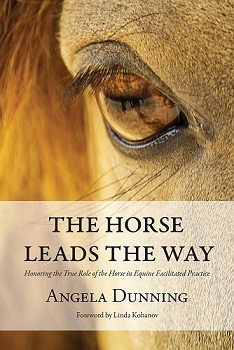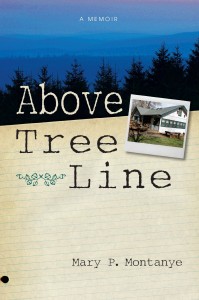
by Jenna | Jul 26, 2017 | Writing Articles
Last week I shared Part I of this post about the many faces of procrastination, and the underlying reasons it shows up. It's not necessarily "just" writer's block or laziness, which are the common explanations I hear.
There are actually a number of variations on the theme of procrastination, and it's usually driven by something deeper, like feeling stuck, being overwhelmed, being hooked by perfectionism, or wrestling with past creative wounds that need addressing -- some of the examples I wrote about last week.
Let's look at a few more of these writing-stoppers that show up as procrastination.
You're creatively confused.
Creative confusion is one of the most fascinating causes for procrastination I've come across (perhaps because it's one of my personal "favorites"). Creative confusion will have you spinning in circles, not sure which direction to go with your story, considering multiple ideas and perspectives, and feeling unable to decide among them. It's as if everything suddenly has equal value and there's no differentiating them.
Part of the issue here is empowerment. When you forget that you're the architect of your story and that there's not necessarily a "right" way to write it, it's easy to get confused. Confusion can also be a smokescreen for the fear that you'll get it "wrong."
Antidotes: Make the shift into action by being willing to do the work of sorting through your ideas by putting them on paper and evaluating them as objectively as you can. One of the ways creative confusion keeps you stuck is that it all happens very quickly in your head. Get it down, and figure it out. And remember that you're the one in charge. It can also be helpful to talk it through with a trusted coach or writing pal who has your story's best interests at heart (not her ideas for what you "should" do).
You're feeling apathetic about your book (or script).
Creative boredom or apathy is another one of these super tricksters that can keep you locked into procrastination. You don't write because it feels like you've "just lost interest" in your story. Interestingly, this usually happens when you've just hit (or are about to hit) a major milestone with your story, or you're about to tackle the next stage. What's happening here is that a new level of fear is cropping up and putting the brakes on to minimize your risks of failure.
In other words, it ain't about the story.
Antidotes: Keep on keeping on. The only way out is through. While there may be passages in your book that are need work, that's a storytelling problem, not "time to give up on the whole project" problem. This is the place to commit to finishing, no matter what.
This is also a great time to remind yourself of your Why for the project -- why you started writing it in the first place. Sometimes just tracking back to the Why will be enough to get you in action again.
You're having trouble deciding which book to write.
This kind of procrastination turns up when you know you want to write or feel ready to write but you can't decide which story to work on, or you decide on one, only to change your mind in short order, usually telling yourself it's not good enough in some way, then look around for something else to work on, only to dismiss that one too. And the next one after that.
This kind of procrastination can also look like coming up with a bazillion ideas to work with but not being able to choose among them.
Antidotes: Check out my free downloadable guide about how to choose your next book (or script) using decision criteria and intuitive decision-making skills. You can also try one of my favorite bits of Steven Pressfield's wisdom, which is to "figure out what scares you the most, and do that first."
(If, on the other hand, you're totally drawing a blank for any ideas at all, try Elizabeth Gilbert's approach of paying attention to your faintest whispers of curiosity and see where they lead you.)
You've fallen out of the habit of writing and each day that goes by, it gets harder to restart.
If your writing practice has fallen apart -- for whatever reason -- procrastination has taken hold and it's just not getting any better. Each day you tell yourself you're going to write, but find endless distractions around the house, get caught up in work (or TV or candy crush!), tasks to take care of, or toilets to clean. This is "garden variety" procrastination in my book, but it's still a doozy.
Antidotes: Set a very small writing goal and meet it. Then do it again the next day. And the next. Keep going until you have the practice in place. Troubleshoot any obstacles that come up -- like falling into reading email or getting sucked into other tasks -- and find ways to streamline your path to your writing desk each day. If you set a goal, and you're still procrastinating, make the goal smaller until you actually do it. Get accountability to help you with this if you need it. (Work with me 1:1, for example.)
You're dealing with big personal changes.
Look, sometimes big life events happen and the idea of tackling writing at the same time feels (and may even be) impossible. Major illnesses, weddings, new romances, births, deaths, break ups, divorces, moves, and job changes are life changes that can get in the way of writing and then morph into "regular" procrastination even once the dust has settled. It's okay. It happens. But it's helpful to know how to deal with it when a big part of your identity is tied into being a writer and you start losing your sense of self while it's all happening, and then wonder who you are when it's done.
Antidotes: Be patient with yourself during the upheaval, and give yourself a little time for re-entry. You may want to have a "maintenance practice" of writing morning pages in place during these times, even as a placeholder until you can get back to your book or script writing efforts. Have a plan in place for how and when you'll reboot your writing once you've made it through the thick of the experience. If you find yourself still struggling with your identity after the fact, do some journaling or coaching work to help get you back in touch with yourself as a writer.
You're an adrenaline addict.
One of the most fascinating parlor tricks I see writers engaging in is creating an endless series of non-writing emergencies, deadlines, and disasters that make it impossible to write. This is procrastination at its peak form, because it becomes inarguable. Whatever "it" is, has become such an emergency, that it has to be done right now. At this point, it actually does. But when a writer lives this way, chasing from disaster to disaster, writing always gets to stay (safely) at the bottom of the pile.
The trickiest trick of all is that the purveyor of these hijinks deep down revels in the sense of excitement and in being the rescuer of the situation from certain doom. It turns out, writers who do this to themselves are addicted to the rush of it all, and they'll even design it so they "get" to write this way too (at the last minute, in a mad panicked rush).
This strategy does two things. It's a brilliant way of getting off the hook for doing your best work, because you simply can't, not with all those emergencies to take care of. It's also very clever way of getting an adrenaline boost of energy to face the terror of writing.
Antidotes: Admit the addiction. Make a conscious choice to stop this behavior. Learn to pace yourself -- with everything, including your writing -- and get ruthless about cutting out anything and everything you don't have to do. You don't have to do everything and you don't have to do it all perfectly. Cut some corners!
You're just plain tired.
Maybe you're not exhausted, but "just" tired. Maybe you haven't reached the point of creative burnout, like I mentioned last week, but maybe you have other non-writing commitments that tax you. Some of these are avoidable (volunteering for committees) and some are not (having little kids or an aging parent), but either way you're tired. This tiredness becomes an excellent excuse for procrastinating. "I'm tired," you say. "I just don't have it in me today to write. I'll do it tomorrow."
Antidotes: I've always loved the quote from David Whyte on this subject, “You know that the antidote to exhaustion is not necessarily rest? … The antidote to exhaustion is wholeheartedness.” When it comes to the daily sort of tiredness that can leave us feeling run down (as opposed to massively burned out), writing regularly -- even just in small amounts -- is often the cure. Also, take a look at how you're investing your precious life energy and see where there might be energy leaks you can shore up. Look for where you're not feeling a "Hell, yes!" about the things you've committed to and think about letting them go. Work with a friend or coach to inventory your commitments and see what you can release for someone else to handle.
Photo by Igor Ovsyannykov on Unsplash

by Jenna | Jul 19, 2017 | Writing Articles
When I work with writers to help them stop procrastinating, usually they don't quite know why they're doing it. They often end up labeling it as laziness or writer's block. I can tell you that I've never met a truly lazy writer, and while I certainly have met some who are blocked, sometimes a little delving is required to uncover the deeper issues that are stopping them from writing.
Let's talk about the spectrum of writing-stoppers that show up as procrastination.
You're stuck.
You might find yourself procrastinating when you're stuck. Maybe you've hit a section you aren't sure how to deal with, or you need to rewrite some or all of your draft but you're not sure where to start, so you just... don't. This stuckness doesn't take long to turn into procrastination, and soon, to full on avoidance.
Antidotes: Sometimes when you're stuck, you need help to get going again. A plot coach or a writing friend often comes in handy here. Alternatively, you might want to write about the writing -- this is a great time for some journaling and brainstorming to unlock your writing energy and ideas.
You're overwhelmed.
Sometimes the sheer volume of work facing you will cause you to procrastinate. When you're looking at a mountain, it's hard not to feel the weight of it bearing down on you.
Antidotes: The antidote for overwhelm is to find one small step to take. In other words, what's the first thing you can think of, no matter how small, that you know you can do now? Then do the next thing. This is a great time to pick easy things to do too, because when you're feeling overwhelmed, easy makes it doable. Sometimes I'll just work on formatting for a bit to get myself back into the project, no matter how fiddly it is. No step forward is too small.
You've been hooked by perfectionism.
When you get stuck in believing that you must make your writing perfect or get caught up in visions of this being your biggest hit ever, you'll be triggering procrastination faster than you might believe. Perfectionism, procrastination, and paralysis work together to create a vicious cycle that keeps you from writing, ever. Perfectionism is funny way of staying safe too, because if you don't write it, you don't have to see it being flawed and imperfect, nor can you be ridiculed for it.
Antidotes: Make peace with being an imperfect human being who values writing and finishing more than telling yourself whoppers about incredible success or massive failure that hold you back. Embrace the notion that only the divine is perfect, and decide that messy and done is so much better than not writing.
Your inner critic is freaking out.
When the voice of your inner critic starts getting loud and scary, it's hard to keep writing, especially if you listen to it as if it's the voice of truth and reason, rather than simply a terrified guard dog it trying to keep you safe. Also note that this voice will get louder and scarier the closer you are to the precipice of taking action, finishing a draft, or moving into a new level of your career. If those aren't reasons to procrastinate, I don't know what is!
Antidotes: First, pat your inner critic on the head and tell him/her that you're going to take care of everything, you got this, and you don't need any help protecting yourself. Then, one by one, rewrite the negative self-messages that swirl through your mind while you're writing into positive, believable statements. Having a coach or witness for this work helps it land more deeply and take root in your psyche in a positive way.
You've gotten feedback on your work and it's affecting you.
Good feedback, bad feedback. Feedback period. All feedback affects us. It's an energetic shock to the system that's hard to absorb. We've been tenderly entwined with our beloved writing only to have it held at arm's length by a stranger who cooly evaluates it. The stun from this can send you into a tailspin. And good feedback? Glowing feedback on your early chapters? That can be a recipe for triggering perfectionism and the anti-creativity cycle too, because suddenly you have to measure up to your existing work and you might not believe you can.
Antidotes: After giving yourself some time to recover from getting the feedback, take a deep, deep breath. Remind yourself who is in charge. (That would be you.) Evaluate the feedback as cooly as it evaluates your book. What do you agree with? Use that. What do you disagree with? Throw it out or save it for later re-evaluation.
You're deeply exhausted and you're self-protecting.
Sometimes you may procrastinate because you're actually deeply tired or burned out, and reflexively protecting yourself from overextending. This may be the result of binge writing, pushing to meet deadline after deadline, or from being exhausted by a non-writing life circumstance.
Antidotes: Rest. Write for the love of it, if you're called to do so, but make it easy, like journaling, and give yourself some time to recover. You will feel the call to write again. Trust me.
You're dealing with a creative wound that needs addressing.
When you're not writing... and not writing... and not writing... and it's just going on forever, sometimes there are deeper creative wounds that have gotten triggered and need addressing. Like that time you were ridiculed for daring to make art and express yourself creatively. Or how you were raised in a family culture that taught you that writing would never pay your bills and you were a fool if you pursued it. Or the scathing feedback you received from someone you deeply loved. Events like these leave open wounds in our psyches, like ghosts in the machine.
Antidotes: Revisit the events in a safe way (such as through visualization or journaling) so you can find the truth in the experience from a broader spiritual perspective. From there, you'll be able to begin to find forgiveness for yourself and peace with the experience. Often these experiences happen to us when we are young, and having our more mature perspective helps us begin to shift how we feel about it now. While you can do this work on your own, working with a coach or witness who can hold a safe space while you're processing what happened can accelerate your growth and ability to move past the pain.
And there's more...
There are many more underlying reasons for procrastination, including creative apathy, confusion, adrenaline addictions, and more. Read Part II, here.
Photo by Igor Ovsyannykov on Unsplash

by Jenna | Apr 11, 2017 | Guest Posts
And we're back! It's time for the next installment of our "Author Insights" series. In this series, I'm introducing you to writers who've taken their writing all the way to the finish line of publication, and they share their "lessons learned" with you. There's nothing quite like learning from a writer who has made to the other side.
Plus, if you leave a comment at the end of the post before Friday, April 14th at 5 p.m. Pacific Time, you'll be entered to win an ebook copy of the author's book in a random drawing.
Meet Angela Dunning, author of The Horse Leads the Way
I'm so happy to introduce you to Angela Dunning. Angela was one of my earliest coaching clients. I loved working with her to help her get in touch with her core, essential self and discover her life purpose and calling to work with horses. She was an ideal client, putting in the effort and earning the results we arrived at... and it was a memorable, magical moment when we lit upon Equine Facilitated Learning (EFL) as her career direction. Since then, it's been a true delight for me to watch her career evolve and thrilling to see her publishing her book in her area of expertise. Honestly, words can't convey the excitement I feel seeing Angela bring our work to this level of fruition all these years later.
I asked Angela to share her insights about writing her book with us.

Angela Dunning on 7 Lessons Learned While Writing The Horse Leads the Way
 Writing my first ever book, a non-fiction handbook for my profession of equine facilitated practice, was one of the hardest and most challenging things I have ever done. I had no idea just what exactly was involved in creating and structuring an entire book. Having written articles and blog posts for many years now I found writing a book to be a whole different ballgame.
Writing my first ever book, a non-fiction handbook for my profession of equine facilitated practice, was one of the hardest and most challenging things I have ever done. I had no idea just what exactly was involved in creating and structuring an entire book. Having written articles and blog posts for many years now I found writing a book to be a whole different ballgame.
On top of this, the book’s focus was somewhat of a challenge for the industry it is aimed at, as I was attempting to question some current areas of practice and training, as well as hoping it would steer the profession back to a more horse-centered methodology. Gulp!
Many, many times I wanted to quit. It was too scary. Too hard. Too much work. And most of all, it took SO much longer than I had originally envisaged to really pummel and kneed the content into shape in a way that would be more palatable to the readers; not cause me too much trouble, and make it as easy and enjoyable a read as possible. On top of all of this, I had an unseen force pushing me on throughout. Maybe it was my Higher-Self/Soul, maybe it was also the horses themselves urging me on to express their concerns and needs, but something kept me going and would not let me quit. Whew…
So, here are my tips, having actually managed to successfully come out the other side of publication. I hope these tips will help and encourage other first-time writers, as I really felt this need myself as a first time writer. It was often a lonely and scary experience and hearing other writers’ experiences was both comforting and encouraging.
- Don’t underestimate how long the editing process takes. I found I did the initial main write in the first 6 months -- and this was a complete joy by the way! However, it then took a further 14 months of nothing but editing, restructuring, and proof-reading over and over again to complete the book.
- Avoid giving yourself arbitrary timescales for completion and publication. My biggest error all along was hoping it would be completed much sooner than it actually was. I had already begun talking openly in my networks about the book and its themes with some enticing social media marketing posts. But as the months wore on I had no energy to continue these as all my time and energy was taken up with the editing process. These arbitrary deadlines I kept giving myself in the end just caused me a ton of unnecessary stress and repeated disappointment. Now that I have a more realistic idea of how long it takes I wouldn’t even mention publication, book-launches and the like, until much nearer the end of the editing process.
- Find yourself a really good editor. Someone who can be completely impartial yet who can also understand your subject matter. Ideally this is someone who can see the bigger picture and help with structure, logic, and readability. If they also do an excellent job of proof-reading and technical editing, then great. If not, then find yourself a great proof-reader too. My advice would be to tackle the structure first, once you’ve got the bulk of your material written. Finalize the structure and flow, and only then move on to the proof-reading and final tidying-up phase.
- Don’t underestimate the amount of energy and commitment it takes to complete a book. It is a marathon and can be gut-wrenching a times. Many times you will want to quit, put it aside, do it another time. Having great support throughout this process is vital. You need friends and family to listen and empathize with you. And you also need really supportive cheer-leaders who you can go to when you feel low, and who will remind you why you are doing it and why your book is important.
- Treating the experience like it was my full-time job was vital, from the very beginning of sitting down to write the content right through to the grueling final months of editing and more editing. Making this commitment to myself and my life to finish the book was crucial. I let go of other assignments and greatly reduced my other commitments so that I could do this. For me personally, and for my mental wellbeing, this was essential to enable me to stay focused and committed to the end product and its purpose.
- Many people say this is like a birthing process. I absolutely agree with this analogy. The labor-pains I endured, which went on for MONTHS, were at times excruciating. Don’t underestimate just what it takes on all levels to write and publish a book. It takes self-care, nurturance of each part of the project, support from others, and ideally, a skilled publisher to hold your hand through those final, painstakingly slow weeks of design, further editing and layout before you even receive a hard-copy in your hands. The post-birth relief once it is finally out there though is immense and very much welcomed.
- Finally, I would also like to say that I have learned the post-publication period is a very important time for great self-care. Personally, I was exhausted and also a little down during this time. Suddenly I had nothing to focus on each day in such a concentrated way. There was an odd sense of emptiness permeating my days following publication. Coupled with a strange silence as the book made its way onto its readers’ bookshelves and into their hands. I had to now just sit back and wait for feedback and income.
Being gentle with yourself in this period is vital. It is not all champagne corks and celebratory dinners, although these are great, of course. It is also a vital period for rest, recuperation, and time to reflect on the intense process you have just been through, and perhaps put your nearest and dearest through too. Be gentle, rest, and allow yourself to sink into the enormity of what you HAVE accomplished. It is not for the faint-hearted! Writing a book takes courage, faith, and guts. And it changes how you see yourself and also how others see you too. A lot is shifting occurs as a result of becoming an author in addition to the actual material you have produced and this takes time to adjust to and integrate.
About The Horse Leads the Way
 The Horse Leads the Way undertakes a timely review of the rapidly growing profession of Equine Facilitated Practice (encompassing Learning, Coaching Therapy, and Psychotherapy but not therapeutic ridden interventions).
The Horse Leads the Way undertakes a timely review of the rapidly growing profession of Equine Facilitated Practice (encompassing Learning, Coaching Therapy, and Psychotherapy but not therapeutic ridden interventions).
Part handbook, part personal story, the author blends embodied, grounded techniques and compassionate insights to gently guide this method back to its greatest teachers: the horses themselves. Using an approach which is firmly grounded in the view of the horses as sentient beings in their own right, Angela guides practitioners and training providers to employ methods which honor this right throughout all areas of their work. Not only does this protect and support their equine partners’ wellbeing and enjoyment of their work, but, she argues, it also brings maximum benefit to the participants as a natural consequence. It is hoped the book will mark an important turning in this blossoming industry’s future development.
The Horse Leads the Way is available on:
About Angela

Angela Dunning is a sensitive, intuitive horsewoman. She is also a healer, teacher, writer, community worker and consummate holder of sacred space. A graduate of Eponaquest® Worldwide and LEAP, she established her Equine Facilitated Learning (EFL) practice, Equine Reflections, in 2007. She delivers private sessions, talks, workshops, taster sessions, supervision, mentoring, and training. She specializes in supporting women through navigating their own personal growth, reconnecting to their bodies, and reclaiming their true essence. Angela lives in Herefordshire, England and delivers her work in the UK and abroad by invitation.
You can find Angela online at thehorsestruth.co.uk.

by Jenna | Mar 28, 2017 | Writing Articles
Writers don't always recognize the grip of perfectionism when caught in its vise. But perfectionism is a wicked master that keeps us from achieving our true potential.
I should know. I struggle with perfectionism too.
Perfectionism is a Coping Mechanism
I learned to be a perfectionist as a way to keep myself safe. If I did something correctly (as evaluated by my family), I was praised and validated. If I did something incorrectly, I was critiqued. That critiquing resulted in a lot of shame for me. Shame that I wasn't good enough, that I wasn't measuring up. There was an implication I'd embarrassed my family with my error (even if it was something as simple as arranging crackers inartistically). If ever I objected to taking part in something aesthetic, I was told, "but you're so creative." So I would comply out of sense of obligation and guilt. And then when if or when my creativity didn't measure up, I would go deeper and deeper into hiding and shame. And yet at the same time, I loved (and love) being creative. Such a trap!
So many writers have similarly intricate sets of creative wounds, and perfectionism as a coping strategy is the result.
Perfectionism Endangers Excellence
Either do it perfectly, or don't do it at all.
Perfectionism tells us there's a right way and a wrong way to do things. To do anything. Perfectionism doesn't allow for mistakes or failure. But those so-called "failures" and "mistakes" are where the greatest breakthroughs and innovations happen. We've seen this through history, science, and technology. The path to success is rarely a straight line.
When we court perfection, we endanger our own brilliance, excellence, discovery, and evolution.
Perfectionism Lies to You
Interestingly, writers who are perfectionists will often self-describe as being "lazy."
Perfectionism says you aren't good enough, you aren't trying hard enough, and concludes that you must be lazy or you would be working harder. And in fact, when you procrastinate on taking creative action, you might even look lazy. But that is a lie.
The real reason you are procrastinating is that you are afraid you will not be able to do your work perfectly, so it's safer not to do it at all.
You are not lazy, you are terrified.
These "lazy" writers are also often the same writers with intense fantasies of landing on bestseller lists and high achievement.
Perfectionism also lures you into daydreams of massive success. Awards, recognition, fame. But rather than being motivating, these visions are also paralyzing, because just as before, you are afraid you will not be able to achieve this high level of success, so it's safer not to try at all.
Perfectionism likes black and white extremes. In perfectionism's eyes, you're either a massive failure or a massive success.
Perfectionism is lying to you.
Write Because You Love It
What if you were just you? Being your excellent, awesome self? Showing up, doing your work, writing because you love it, because you're called to it, not out of fear of blowing it or the hope of making it big?
Instead of striving for perfection, strive for excellence through action. Allow yourself to fall, and get back up, over and over again.
Keep writing.

by Jenna | Mar 21, 2017 | Guest Posts
And we're back! It's time for the next installment of our "Author Insights" series. In this series, I'm introducing you to writers who've taken their writing all the way to the finish line of publication, and they share their "lessons learned" with you. There's nothing quite like learning from a writer who has made to the other side.
Plus, if you leave a comment at the end of the post before Friday, March 24th at 5 p.m. Pacific Time, you'll be entered to win an autographed copy of the author's book in a random drawing. (IMPORTANT: You must be located in the United States to win.)
Meet Mary Montanye, author of Above Tree Line
I'm thrilled to introduce you to Mary Montanye. Mary joined my writing community at the beginning of 2013 in order to finish the memoir she'd been working on for five years before she joined us. She's now tackling her next big writing dream with the help of the writing community: Writing a romantic suspense novel. Mary quickly became a staunch advocate for the approach we use in the writing community and joined the team as a coach after participating as a member of the writing community for about a year and a half.
I asked Mary to share her insights about writing her memoir with us.

Mary Montanye on 5 Lessons Learned in Writing Above Tree Line

My memoir, Above Tree Line, took seven years to write and publish. During that time, I made a lot of mistakes. Here's what I learned and how I’d do it differently now.
1. Find support early in the process, but don’t let that support stop you from completing the project so you can move on to others.
I worked with a brilliant writer and teacher for much of the writing of Above Tree Line. I learned a great deal from her and will always be grateful for the time I spent as her student. But eventually I realized that somewhere in my work with her I’d become stuck. We were spending all our time together going over and over the same material — changing, tweaking, finessing. I began to wonder if my resistance to publishing and her desire to keep me as a student, might be getting in the way. I ended our working relationship and joined Jenna's writing community instead. I completed my memoir within a couple of sessions and moved into the publishing stage.
2. Don’t start at the beginning when writing a memoir. (This might be true for other types of writing as well. I’ll let you know when I finish the novel!)
Start anywhere you feel the heat — a memory, a taste, a color, an image, a sensation, a fragrance. Write from there. “She was born on August 16th at such and such hospital in Honolulu, Hawaii…” will bore you and make it more difficult to continue. Your reader won’t like it either. So why bother?
Let the first draft be all over the place. Let it be messy, filled with what was powerful and exciting for you. Ask yourself what interests you about your history or your family. Put it all in, even those parts you know you’ll never let stand. This draft is not the time to censor yourself. If you worry about what your readers will think, you might find you’ve left the gold in the ground and can’t remember where it was when you want to dig it up later.
3. Recognize fear and resistance for what it is — just fear and resistance. It doesn’t mean that you’re not a writer or that it is time to quit.
Fear and resistance got the best of me during the writing stage because I was not separating the creating of a project from the publishing or marketing of it. If I was in the middle of writing about a painful period of my childhood, for instance, and suddenly flashed on the idea that someday someone, perhaps even someone I knew and loved, would be reading it, I froze. I also stopped myself from writing when I’d compare my writing to that of others or when I read posts about the impossibility of publishing in the current marketplace. My coach and fellow writers in the writing community gently guided me back to what was in my power to do: write. Write the best story I could write now, they urged, and leave the rest for later.
4. When you share your writing other than with friends and family, it’s a pretty safe bet that someone won’t like it, that you will get rejections or negative reviews.
I was devastated when a woman who reviewed my memoir for a contest said that, even though the writing was good, she didn’t like either me or my husband. She was a stranger and still it hurt that she didn’t like me and that I’d portrayed my husband as unlikeable as well, at least in her eyes. I made this one review more important than it was — even more important than the complimentary reviews I’d received. A negative review almost stopped me from ever sharing my writing with anyone again.
The lesson in this for me, and I hope for you, is that if you write honestly, if you allow yourself to be vulnerable on the page, you will affect people. And that’s what we want, right? It’s okay if some of our readers don’t approve, like the writing, or even us. Feel your feelings about the review. The writing community and my coach helped me with this, too. They shared my pain and helped me to put it aside, to continue on.
5. Keep at it. If you have a desire to write, you are meant to write. Jenna would say you have a calling, and we both believe that callings are meant to be followed.
When I held my published memoir in my hands, felt the weight of it, and flipped through its pages, it was one of the greatest days of my life. I was so proud. I wish you the same experience. No matter where you are in your writing, no matter how unsure you may feel, keep going. Get help if you need it, but whatever you do, don’t give up. It is so worth it!
About Above Tree Line
 From Amazon.com: "The traumas and losses of childhood are often buried. The child grows up appearing normal, unscathed and perhaps even successful. But often what is buried comes back to attack at the very moment when life is reaching its pinnacle. This is the story of one woman’s spiral downward into physical and mental breakdown and her return to wholeness by courageously, and some would say recklessly, following her intuition. Ms. Montanye’s intuition leads her to a tiny town in a Colorado canyon alongside the wild and scenic Cache La Poudre River. There, she immerses herself in the grandeur and beauty of the surrounding mountains. When her journey begins, no one involved can know that it will lead to such a powerful and bittersweet end: an end that includes healing for herself, her marriage and for the difficult relationship she endured with her mother."
From Amazon.com: "The traumas and losses of childhood are often buried. The child grows up appearing normal, unscathed and perhaps even successful. But often what is buried comes back to attack at the very moment when life is reaching its pinnacle. This is the story of one woman’s spiral downward into physical and mental breakdown and her return to wholeness by courageously, and some would say recklessly, following her intuition. Ms. Montanye’s intuition leads her to a tiny town in a Colorado canyon alongside the wild and scenic Cache La Poudre River. There, she immerses herself in the grandeur and beauty of the surrounding mountains. When her journey begins, no one involved can know that it will lead to such a powerful and bittersweet end: an end that includes healing for herself, her marriage and for the difficult relationship she endured with her mother."
Above Tree Line is available on:
About Mary
 Mary Montanye lives on the central Oregon Coast where she gratefully writes and coaches while often resting her eyes on the beauty of the natural world that surrounds them. Mary has a master's degree in clinical social work from the University of Iowa and counseled individuals and families through nonprofit agencies and her own private practice for many years before retiring and following her dream to write.
Mary Montanye lives on the central Oregon Coast where she gratefully writes and coaches while often resting her eyes on the beauty of the natural world that surrounds them. Mary has a master's degree in clinical social work from the University of Iowa and counseled individuals and families through nonprofit agencies and her own private practice for many years before retiring and following her dream to write.
You can find Mary online at www.marymontanye.com.




 Writing my first ever book, a non-fiction handbook for my profession of equine facilitated practice, was one of the hardest and most challenging things I have ever done. I had no idea just what exactly was involved in creating and structuring an entire book. Having written articles and blog posts for many years now I found writing a book to be a whole different ballgame.
Writing my first ever book, a non-fiction handbook for my profession of equine facilitated practice, was one of the hardest and most challenging things I have ever done. I had no idea just what exactly was involved in creating and structuring an entire book. Having written articles and blog posts for many years now I found writing a book to be a whole different ballgame.



 From Amazon.com: "The traumas and losses of childhood are often buried. The child grows up appearing normal, unscathed and perhaps even successful. But often what is buried comes back to attack at the very moment when life is reaching its pinnacle. This is the story of one woman’s spiral downward into physical and mental breakdown and her return to wholeness by courageously, and some would say recklessly, following her intuition. Ms. Montanye’s intuition leads her to a tiny town in a Colorado canyon alongside the wild and scenic Cache La Poudre River. There, she immerses herself in the grandeur and beauty of the surrounding mountains. When her journey begins, no one involved can know that it will lead to such a powerful and bittersweet end: an end that includes healing for herself, her marriage and for the difficult relationship she endured with her mother."
From Amazon.com: "The traumas and losses of childhood are often buried. The child grows up appearing normal, unscathed and perhaps even successful. But often what is buried comes back to attack at the very moment when life is reaching its pinnacle. This is the story of one woman’s spiral downward into physical and mental breakdown and her return to wholeness by courageously, and some would say recklessly, following her intuition. Ms. Montanye’s intuition leads her to a tiny town in a Colorado canyon alongside the wild and scenic Cache La Poudre River. There, she immerses herself in the grandeur and beauty of the surrounding mountains. When her journey begins, no one involved can know that it will lead to such a powerful and bittersweet end: an end that includes healing for herself, her marriage and for the difficult relationship she endured with her mother."